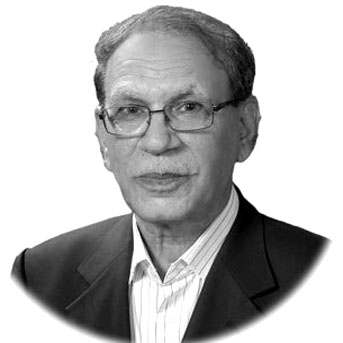Mohammad Jamil
IT is common knowledge that the world was not de
veloped equitably, and there are still a few places in
the world where people are living in 14th 15th or l6th centuries simultaneously. In the sub-continent, the British Raj did not feel the necessity to develop all the regions, and focused on the regions, which it thought, were of utmost importance to suit its strategy. Balochistan and NWFP were completely ignored due to various reasons; and during half a century after establishment of Pakistan, inept governments pursued lopsided policies and neglected Baluchistan and NWFP. They strengthened tribal sardars who never gave a fair deal to the downtrodden people of Balochistan, rather exploited them. They resisted efforts of the federal government make infrastructure and establish educational institutions. It was in this backdrop that Sardari system was abolished by Z A Bhutto in 1976. A few Baloch Sardars insisted that Balochistan was never part of Pakistan.
However, a quick glance through history would prove them wrong. The province was originally formed over the period 1876-1891 by three treaties between Sir Robert Sandeman and the Khan of Kalat. He was Political Agent for the British-administered areas which were strategically located between British India and Afghanistan. In 1955 Balochistan was merged into One Unit, however in 1970, One Unit was done away with by Yahya government and the provincial status of Balochistan was restored. Before appointment of Sir Robert Sandeman as political agent in Balochistan, British Raj used to give a part of stipend or ‘dole’ to big sardars; however a major part went to smaller chieftains of the tribes who shared with the people. This two tier system was abandoned after Pakistan came into being and sardars arrogated all the powers of chieftains; thus people of Balochistan were left at the mercy of sardars.
It has to be mentioned that apart from Quetta District that was administrated under civil law, the rest of the territory was under Frontier Crimes Regulations (FCR). Government of British India had constituted a special body of tribal elders known as “Shahi Jirga” for consultation by Assistant Governor General (AGG) on local issues relating to British Balochistan. On 29th June 1947 “Shahi Jirga” of British Balochistan as representative body of AGG along with elected members of Quetta Municipal Body unanimously passed a resolution of forming part of Pakistan. The State of Kalat had customary over-lordship on States of Kharan, Makran and Lasbela. As these three states decided to join Pakistan in March 1948, the Khan of Kalat (KoK) also acceded to Pakistan on 27th March 1948, which was his well-considered decision. Khan of Kalat’s brother having mustered support of about 130 tribesmen started insurgency in 1948, which never took off the ground, and the matter was brought under control.
Historical evidence suggests that before the British Raj, tribal people used to choose their sardar on the basis of his valour, his wisdom and his commitment to the welfare of the tribe. The British, however, gave sardars unprecedented powers and sardari system was made hereditary. People of Balochistan are patriotic but some arrogant sardars have been at loggerheads with the Centre. In the 1970s Baloch sardars had taken to the mountains in their tiff with late Z A Bhutto who wished to construct roads and schools in Balochistan. Cases were instituted against Marri and Mengal sardars. Late Zia-ul-Haq, however, adopted the old policy of reconciliation with local Baloch sardars and peace was restored in the province. In 1988 Balochistan Assembly was dissolved, when Nawab Akbar Khan Bugti was Chief Minister of the province, but later was restored under the orders of High Court.
It has to be borne in mind that tribalism is firmly rooted in Balochistan, as ethnic and tribal identity is a potent force for both individuals and groups in Balochistan with the result that there exists deep polarization among different groups. Each of these groups is based on different rules of social organization, which has left the province inexorably fragmented. Tribal group-ism had failed to integrate the state and enforce a national identity. Anyhow, leaders of Balochistan should be respected but at the same time they have to forget their bitterness of the past and make a fresh start. During an interview with a TV channel, Mir Byar Marri had said: “American enslavement is better than Punjab enslavement because Punjabis will come and occupy our lands for good. The Americans will only steal our oil and gas, while Punjabis will obliterate our national identity”.
During the last seven years, military leadership has devoted special attention to Balochistan and established schools and dispensaries to provide education and health facilities out of its own resources. Army has significantly contributed in providing healthcare facilities in Balochistan; and these include Quetta Institute of Medical Sciences, free medical camps and extended program of immunization offering free services in Malaria control program, HIV and AIDS control programme and Hepatitis control program. In addition, army provided an enabling environment for peaceful and impartial holding of Local Bodies Elections in Balochistan on 7th December 2013 through employment of QRFs (13.5 Battalions – 135 QRFs, 10 Sectors). Army remained fully committed to provide relief and rescue operations to victims of Awaran earthquake 2013. They had provided required relief to the affected population despite hostile security environment due to BLF’s vile activities. These measures have already created a sense of patriotism among people of Balochistan.
—The writer is a senior journalist based in Lahore.









